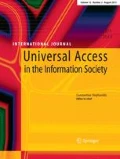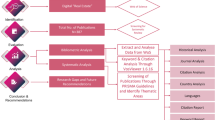Abstract
The information society (IS) can be defined as a society that will witness creation, storage, processing, and distribution of information as major source of economic and cultural activity. IS has also been defined in social, economic, technological, and cultural domains. This study peruses the technological parameter into consideration to look into the role information and communication technology (ICT) infrastructure can play to build and promote IS in India. India’s progress on millennium development goals (MDGs) is scrutinized to benchmark with average rates of various economies around the world. Extensive literature survey has been conducted to contextualize IS in India. In three of the important parameters of MDGs, India struggles in the bottom of the benchmarked nations in terms of internet users and telephone lines. However, its performance in mobile density has surpassed low-income, South Asian, and sub-Saharan African countries. India must invest in these technologies to perform better, as UN considers these three parameters on a par with literacy, water, sanitation, etc. A large portion of the population in the country, specially in rural areas, is not able to access ICT infrastructure that if often characterized as poor in quality. There is consistent need from the government to dedicate a larger sum of ICT expenditure on its mega project ‘National e-Governance Plan’ (NeGP). However, just like an oasis in the desert, India remains one of the most affordable nations to offer prices for fixed lines, mobile telephones, and the internet. In terms of ICT usage, India also attains the distinction of highest uses of mobile telephone (minutes/user per month). These strengths can definitely uplift the sagging morale of the Indian economy to get on the path of contemporary IS.



Similar content being viewed by others
Notes
The World Summit on the Information Society (WSIS) was a pair of United Nations-sponsored conferences on information, communication and, in broad terms, the information society that took place in 2003 in Geneva and in 2005 in Tunis. It was held in response to the general purpose of ICTs and its use in society and mainly addressed the increasingly importance of ICTs in context with the developing countries [International Telecommunication Union (ITU)–United Nation Conference on Trade and Development (UNCTAD)] [25].
Most of the contents available in global World Wide Web (WWW) on internet are in English, the language of less than 10 % population of the world (Canadian International Development Agency CIDA) [7].
Signed by 147 heads of states at the United Nations Millennium Summit in September 2000, the eight MDGs are: eradicate abject poverty, achieve universal education, promote gender equality and empowering women, reduce child mortality, improve maternal health, combat sustainability, and develop a global partnership for development [40].
In their ‘Blueprint for Action’, APEC ministers recognized the enormous potential of electronic commerce to expand business opportunities, reduce costs, increase efficiency, improve the quality of life, and facilitate the greater participation of small business in commerce [3].
Developed with the partnership of multiple stake holders: Korea Agency for Digital Opportunity and Promotion (KADO); Ministry of Information and communication of Republic of Korea; LIRNEAsia and LinkAfrica.
Through an informal system, DOEACC introduced computer courses like DOEACC-A level (equal to Diploma), B-level (equal to Graduation/BSc), and C-level (equal to Master/M. Tech). The Society also run short courses starting from short duration to 1 year (equal to certificate level). These courses were designed in the light of huge deficit of trained IT manpower in the economy, especially after the success of Indian software industry at international level. These courses are designed on an informal system because these are in addition to the formal ones offered by universities and educational institutions.
Web of knowledge is a consortium of international publishers including Elsevier, Wiley, Springer making available all the content of quality journals in digital form. Subscribers have access to full text and abstracts of important publications.
References
Anttiroko, A.V.: Towards European information society. Commun. ACM 44(1), 31–35 (2001)
Arunachalam, S.: Information for research in developing countries-information technology—a friend or foe? Int. Inf. Libr. Rev. 35, 133–147 (2003)
Asia Pacific Economic Cooperation (APEC): E-commerce readiness assessment guide. APEC Telecommunication and Information Group (2000). www.apec.org. Accessed 24 Dec 2014
Asian Development Bank: Toward E-development in Asia and the pacific—a strategic approach to information and communication technology (2003)
Bell, D.: The Coming of Post-Industrial Society. Heinemann Educational Books Limited, London (1974)
Britz, J.J.: Making the global information society good: a social justice perspective on the ethical dimensions of the global information society. J. Am. Soc. Inform. Sci. Technol. 59(7), 1177–1183 (2008)
Canadian International Development Agency: strategy on knowledge for development through information and communication technologies (2009). www.acdi-cida.gc.ca. Accessed 24 Dec 2014
Department of Information Technology: Advantages India. Government of India, Ministry of Communication and Information Technology, New Delhi (2005)
Department of Information Technology: Information Technology annual report 2008–09. Government of India, Ministry of Communication and Information Technology, New Delhi (2009)
Dordick, S.H., Wang, G.: The Information Society—A Retrospective View. Sage Publications, Newbury Park (1993)
European Commission: Bangemann report: Europe and the global information society: recommendations to the European council. Brussels ((1994a))
European Commission: White paper: growth, competitiveness and employment: the challenges and ways forward into the 21st century. Brussels (1994b)
Falch, M., Henten, A.: Case study-digital Denmark: from information society to network society. Telecommun. Policy 24, 377–394 (2000)
Gazette of India: The Information Technology Act, 2000. Ministry of Law, Justice and Company Affairs (2000)
Gazette of India: The Information Technology (Amendment) Act, 2008. Ministry of Law, Justice and Company Affairs (2009)
Goransson, B., Soderberg, J.: Long waves and information technologies-on the transition towards the information society. Technovation 25, 203–211 (2005)
Grigorovici, D.M., Schement, J.R., Taylor, R.D.: Weighing the intangible: towards a theory based framework for information society indices. Pennstate, University Park, PA (2002). http://citeseerx.ist.psu.edu/viewdoc/download?doi=10.1.1.387.4038&rep=rep1&type=pdf. Accessed 23 Aug 2015
Hanafizadeh, P., Hanafizadeh, M.R., Khodabakshi, M.: Taxonomy of E-readiness assessment measures. Int. J. Inf. Manage. 29, 189–195 (2009)
Henten, A., Kristensen, T.M.: Information society visions in the Nordic countries. Telemat. Inf. 17, 77–103 (2000)
Hesse, W., Muller, D., Rub, A.: Information, information system, information society: interpretations and implication. Poiesis Prax. 5, 159–183 (2008)
Indian Posts: ePayment makes bill payments easy (2010a). www.indianposts.gov.in/epayments.html. Accessed 3 Mar 2014
Indian Posts: ePOST: bridging the digital divide (2010b). www.indianposts.gov.in/ePOST.html. Accessed 3 Mar 2014
Infodev (2009). www.infodev.org. Accessed 24 Dec 2014
International Data Corporation: The 2000 IDC/World Times Information Society Index (2000)
ITU-UNCTAD: World information society 2007 report-beyond WSIS. Geneva (2007)
Lal, K., Rai, L.P.: Impact of mobile telephony in a wireless information society. J. Sci. Ind. Res. 63, 499–508 (2004)
Lal, K.: In quest of the information sector: measuring information workers for India. Malays. J. Libr. Inf. Sci. 10(2), 85–104 (2005)
Machlup, F.: The Production and Distribution of Knowledge in the US. Princeton University Press, New Jersey (1962)
Mansell, R., Wehn, U.: Knowledge Societies: Information Technology for Sustainable Development. Oxford University Press, New York (1998)
May, C.: The Information Society—A Skeptical View. Polity Press, Cambridge (2002)
OECD: Science, technology and industry scoreboard 2007-innovation and performance in the global economy (2007)
Rai, L.P., Lal, K.: Indicators of the information revolution. Technol. Soc. 22, 221–235 (2000)
Rao, S.S.: Social development in Indian rural communities: adoption of telecentres. Int. J. Inf. Manage. 28, 474–482 (2008)
Ricci, A.: Measuring information society-dynamics of European data on the usage of ICTs in Europe since 1995. Telemat. Inf. 17, 141–167 (2000)
Tsipouri, L.: Europe and the information society: problems and challenges for supranational intervention. J. Comp. Policy Anal. Pract. 2, 301–319 (2000)
UNCTAD: World investment report-transnational corporations extractives industries and development, Geneva (2007)
UNCTAD: World investment report-transnational corporations and the infrastructure challenge, Geneva (2008)
UNDP: Human Development Report 2001-Making New Technologies Work for Human Development. Oxford University Press, Oxford (2001)
Webster, F.: Theories of the Information Society, 2nd edn. Routledge, London (2002)
World Bank: E-ready for what? E-readiness in developing countries: current status and prospects toward the millennium development goals (2005)
World Summit on the Information Society: Declaration of principles-building the information society: a global challenge in the new millennium. Document WSIS-03/Geneva/DOC/4-E (2003a)
World Summit on the Information Society: Plan of action. Document WSIS-03/Geneva/DOC/5-E (2003b)
Zainab, A.N., Abrizah, A., Edzan, N.N.: An ICT enabled knowledge based Malay society. Malays. J. Libr. Inf. Sci. 17(1), 1–15 (2002)
Author information
Authors and Affiliations
Corresponding author
Appendix
Rights and permissions
About this article
Cite this article
Lal, K. Investigating ICT infrastructure to develop an information society in India. Univ Access Inf Soc 16, 517–528 (2017). https://doi.org/10.1007/s10209-016-0472-1
Published:
Issue Date:
DOI: https://doi.org/10.1007/s10209-016-0472-1




